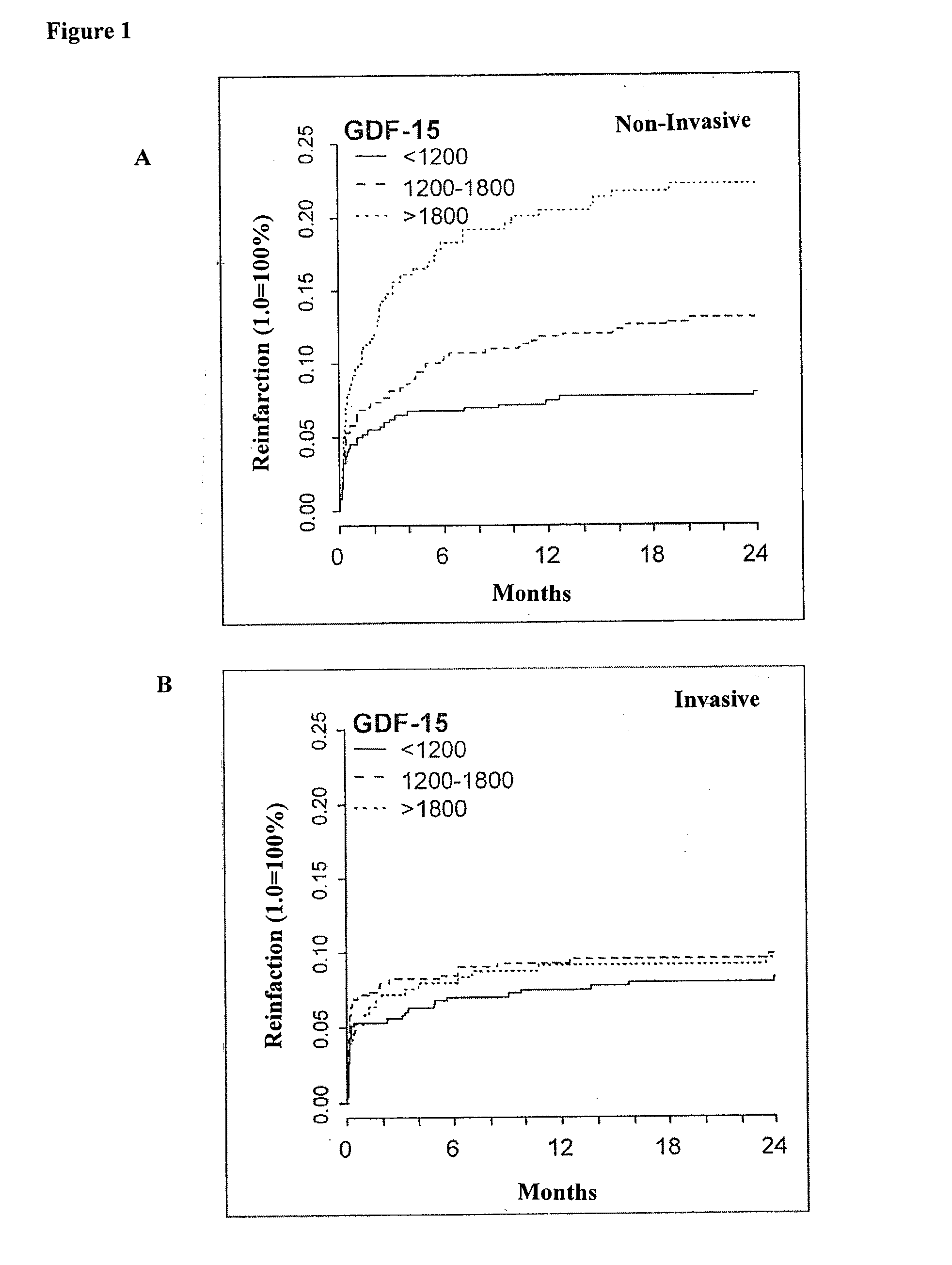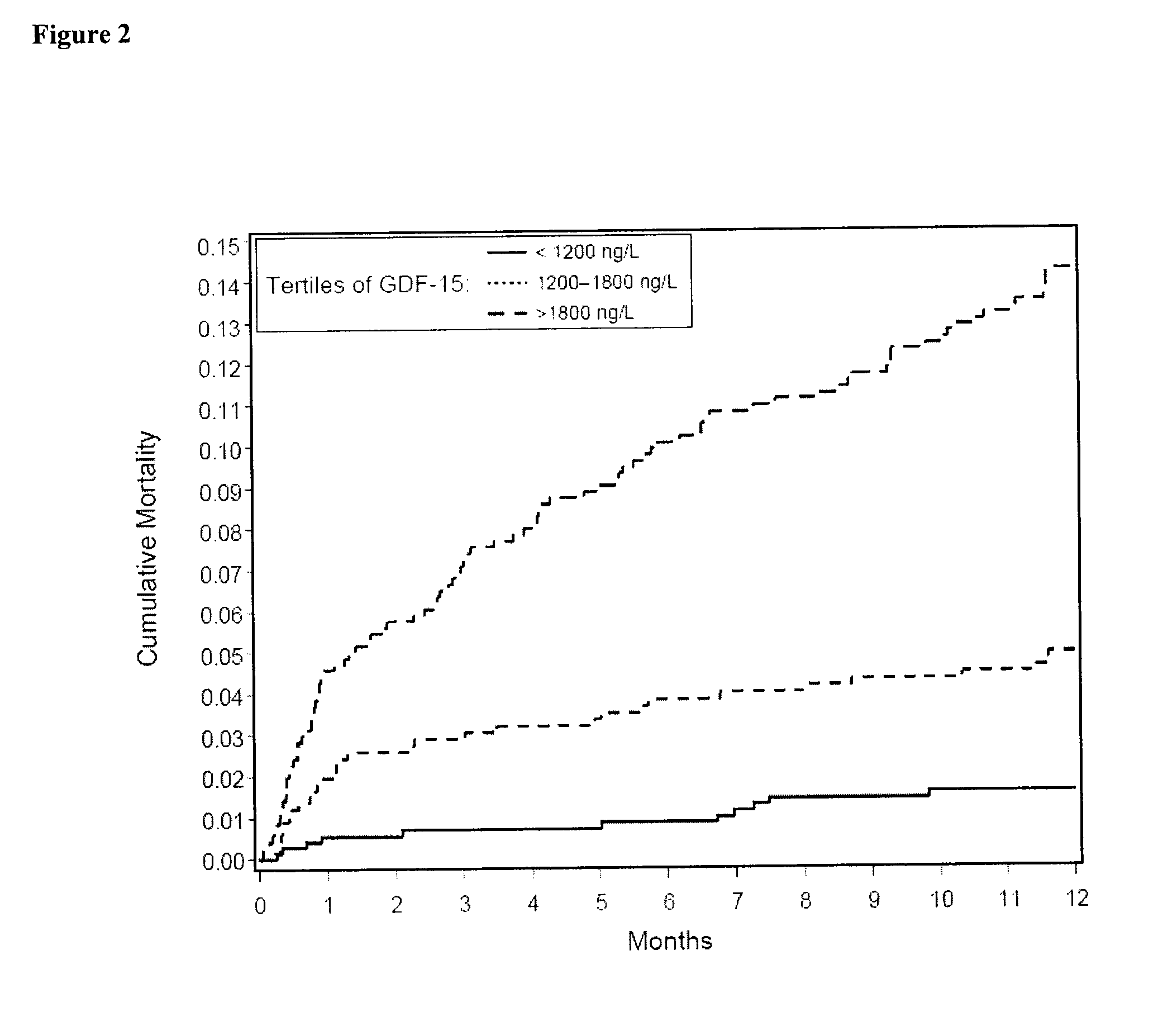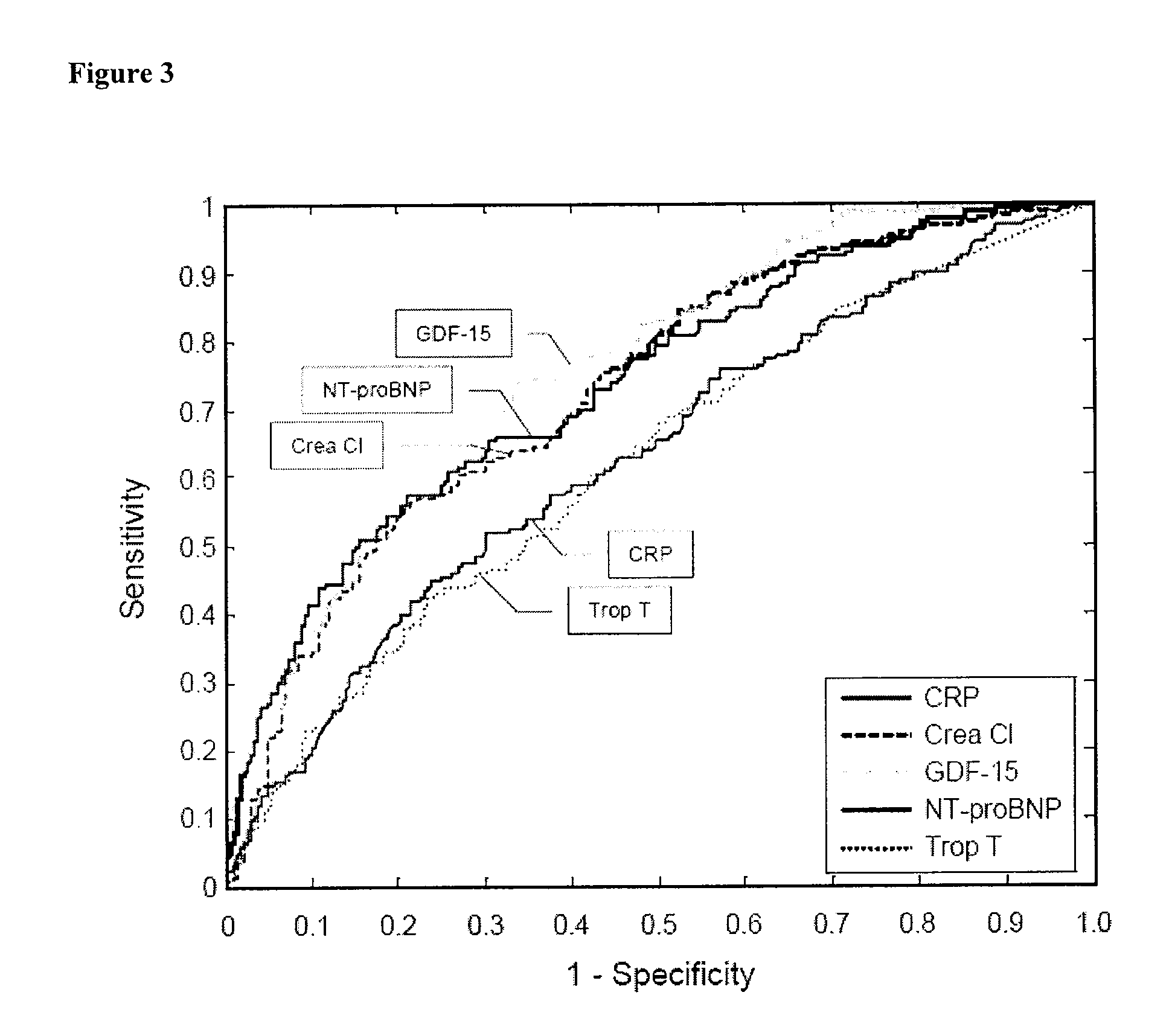Assessing risk of cardiac intervention based on gdf-15
a risk assessment and cardiac intervention technology, applied in the direction of component separation, material testing goods, chemical methods analysis, etc., can solve the problems of cardiovascular complications that can remain asymptomatic for long periods of time, severe consequences, morbidity and mortality
- Summary
- Abstract
- Description
- Claims
- Application Information
AI Technical Summary
Benefits of technology
Problems solved by technology
Method used
Image
Examples
specific embodiments
Example 1
Determination of GDF-15, NT-proBNP and Troponin in Serum and Plasma Samples
[0103]To determine the concentration of GDF-15 in serum and plasma samples, a immunoradiometric assay (IRMA) using a polyclonal, GDF-15 affinity chromatography-purified, goat anti-human GDF-15 IgG antibody from R&D Systems (AF957) was developed. Maxisorp Startubes (Nunc) were coated overnight at 4° C. with 0.5 μg anti-GDF-15 IgG in 0.1 M Na-carbonate buffer (pH 9.0), and then washed twice with phosphate-buffered saline with 0.1% TWEEN 20 (ICI Americas Inc.). Serum or plasma samples (100 μl) were diluted 1:1 with assay buffer (30 g / l BSA, 10 g / l bovine IgG, 1% goat serum, 0.1% Na-azide, 1 M NaCl, 40 mM Na phosphate buffer, pH 7.4), added to the tubes, and incubated for 16 hours at 4° C. After two washing steps, 10 ng of [125I]-iodinated anti-GDF-15 IgG (specific activity 0.74 MBq / μg) were diluted in 200 μl assay buffer, added to each tube, and incubated for 4 hours at room temperature. After three fin...
example 2
Analysis of Patients with NSTE-ACS of the FRISC II Study for Differences between Invasive and Non-Invasive Treatment Regimens
[0106]Patients were recruited into the FRISC II study between June 1996, and May 1998 in 58 Scandinavian hospitals, 16 of which were interventional centers. Patients were eligible for inclusion if they had symptoms of ischemia that were increasing or occurring at rest, or that warranted the suspicion of acute myocardial infarction, with the last episode within 48 h before the start of dalteparin or standard heparin treatment. Myocardial ischemia had to be verified by electrocardiography (ST depression≧0·1 mV or T-wave inversion≧0·1 mV) or by raised biochemical markers (creatine kinase [CK]-MB>6 μg / L, troponin-T>0.10 μg / L, qualitative troponin-T test positive, or catalytic activity of CK, CK-B, or CK MB higher than the local diagnostic limit for myocardial infarction). Exclusion criteria were raised risk of bleeding episodes, anemia, or indication for or treatm...
example 3
Prognostic Utility of GDF-15 in Patients with Chronic Heart Failure
[0123]The relation of GDF-15 levels to clinical and biochemical baseline parameters and survival in a cohort of 235 patients with CHF enrolled at four European centers in Athens (Greece, n=51), London (United Kingdom, n=89), and Wroclaw / Zabre (Poland, n=95) (derivation cohort) was initially investigated. In the validation cohort, we prospectively evaluated the principle hypothesis from the derivation cohort, i.e., that increased circulating levels of GDF-15 provide independent prognostic information in patients with CHF. The validation cohort included 220 patients with CHF who were recruited in Verona (Italy). All patients participated in projects designed to investigate novel neurohormonal and inflammatory prognostic biomarkers in chronic heart failure and provided written informed consent. In all patients, the diagnosis of CHF was based on symptoms and clinical signs, and evidence of left ventricular enlargement or...
PUM
| Property | Measurement | Unit |
|---|---|---|
| pH | aaaaa | aaaaa |
| time | aaaaa | aaaaa |
| nitrosative stress | aaaaa | aaaaa |
Abstract
Description
Claims
Application Information
 Login to View More
Login to View More - R&D
- Intellectual Property
- Life Sciences
- Materials
- Tech Scout
- Unparalleled Data Quality
- Higher Quality Content
- 60% Fewer Hallucinations
Browse by: Latest US Patents, China's latest patents, Technical Efficacy Thesaurus, Application Domain, Technology Topic, Popular Technical Reports.
© 2025 PatSnap. All rights reserved.Legal|Privacy policy|Modern Slavery Act Transparency Statement|Sitemap|About US| Contact US: help@patsnap.com



